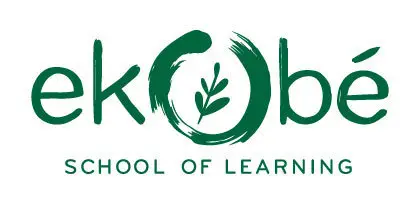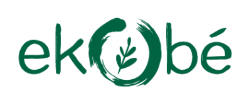
What Do Kids Learn in Preschool?
Preschool is a crucial phase in a child’s educational journey, laying the foundation for future academic success and personal growth. While some may view preschool as simply a time for play and socialization, it is far more than that. In fact, preschool provides a rich and diverse learning environment where children develop essential skills across various domains. Let’s dive into what children learn in preschool and how these experiences shape their early education.
Note: The activities they experience and what children learn in preschool will vary depending on the type of program your child is enrolled in. Ekobé School of Learning is a Reggio Emilia preschool in San Diego, meaning our educational programs acknowledge the competence and independence each child possesses, and we structure the curriculum around guiding children to their own decisions and conclusions about the world in a safe and receptive environment. A lot of what we share below is what you can expect your child will learn at a Reggio Emilia preschool.
So, What Do Children Learn in Preschool?
In preschool, kids learn social and emotional development, communication skills, motor skills development, self-care, creative expression, and cultural awareness.
The type of education philosophy (such as Reggio-inspired preschools, which are based on the social constructivist model) will impact exactly what your child will be learning, but in general, you can expect the following skills to be taught in any preschool program:
Social and Emotional Development
For children that are preschool age, participating in quality education programs offers a unique opportunity for children to engage in social interactions with their peers and teachers. They learn to navigate social settings, build friendships, and develop important social skills such as sharing, taking turns, and resolving conflicts. Through group activities and collaborative projects, children learn to work as a team, express their thoughts and emotions, and develop empathy and understanding.
Language and Communication Skills
Preschool serves as a fertile ground for language development. Children are exposed to rich language experiences, including conversations, storytelling, and exposure to diverse vocabulary. They learn to express themselves verbally, enhance their listening skills, and develop early literacy skills such as recognizing letters, phonics, and basic writing abilities. Preschool also fosters a love for reading and storytelling, nurturing a lifelong passion for learning. Some preschools offer bilingual education programs and/or supplemental language classes. Ekobé is a bilingual preschool in San Diego (tri-lingual in fact!), offering Spanish and Portuguese language programs to students.
Cognitive and Intellectual Development
Preschool activities are designed to stimulate children’s cognitive and intellectual growth. Children engage in problem-solving, critical thinking, and decision-making. Children learn to sort, classify, and categorize objects, developing important early math skills. Preschool also introduces them to basic scientific concepts, encourages curiosity, and nurtures a thirst for knowledge. Through hands-on experiences and exploration, children develop a solid foundation for future academic pursuits.
Motor Skills Development
Preschool offers ample opportunities for children to refine essential motor skills. Engaging in physical activities such as running, climbing, and playing games improve their coordination, balance, and spatial awareness. Fine motor skills are honed through activities like drawing, painting, cutting, and manipulating small to large objects. Developing these skills not only prepares children for future academic tasks but also enhances their overall physical well-being.
Independence and Self-Care Skills
Preschool encourages children to become increasingly independent and self-reliant. They learn to follow routines, manage personal belongings, and take care of their basic needs, such as dressing, toileting, and handwashing. Preschool provides a safe and nurturing environment for children to develop self-help skills, fostering a sense of responsibility and confidence in their abilities.
Creativity and Expressive Arts
Preschool unleashes creativity within each child. Through various art forms like painting, drawing, sculpting, and dramatic play, children explore their imagination, express their thoughts and feelings, and develop their artistic abilities. Music, dance, and movement activities stimulate their creativity, enhance coordination, and foster self-expression. Preschool cultivates a love for the arts and encourages children to appreciate and participate in creative endeavors.
Cultural Awareness and Diversity
Another significant concept that children learn in preschool is appreciating the cultural practices of others. Preschool serves as a melting pot of diverse cultures, beliefs, and backgrounds. Through exposure to different traditions, customs, and celebrations, children develop an understanding and appreciation of diversity. They learn to respect and embrace differences, fostering a sense of inclusivity and empathy toward others. Preschool plays a vital role in promoting cultural awareness and preparing children to thrive in a multicultural society.
The specifics of what and how your child will be learning in preschool may be further directed by the specific curriculum or education philosophy of the preschool your child is attending, such as Montessori (independent learning) or Reggio Emilia (learning within a collaborative, student-centered environment). Ekobé is a Reggio Emilia preschool, which means our curriculum is based on community and collaborative experiences, allowing the children to form their own ideas, theories, and solutions within a group setting.
A Typical Day of Learning at a Reggio Emilia Preschool
At Reggio Emilia schools in particular, this is what you could expect a typical day to look like and what your child will generally learn in preschool:
1. Arrival Routine: Children are warmly welcomed as they arrive at the preschool. This transition time is significant, as it fosters connective social skills that can last a lifetime. Encouraging your child to say good morning to the teacher helps develop social etiquette and establishes a positive atmosphere and connection for the day ahead.
2. Discovery and Exploration: This time provides ample opportunities for free exploration and learning. The learning centers and provocation areas, carefully prepared by teachers, allow children to engage in project work, small group activities, or special whole-class activities. From music sessions to large-scale art projects, children are encouraged to discover and explore their interests, fostering creativity and a love for learning.
3. Community Meeting: As a community, children gather to share their thoughts, ideas, and questions for the day. This interactive session enables them to set expectations and provides a platform for their voices to be heard. Teachers carefully observe these discussions and integrate them into the curriculum, ensuring a collaborative and inclusive learning environment. This part of the day helps children learn supportive planning skills and learn to navigate group goals and group dynamics.
4. Outdoor Active Learning: Outdoor activities are an essential part of a Reggio Emilia curriculum, and most preschool curriculums as a whole. Children engage in outdoor play, enabling them to develop large motor skills while enjoying the freedom of open spaces. Through outdoor exploration, they build physical coordination and an appreciation for the natural world.
5. Handwashing: Health and self-care are emphasized at our preschool. Children are taught the importance of proper handwashing, instilling a daily practice of hygiene and self-awareness. This routine promotes their well-being and fosters a sense of responsibility toward personal health.
6. Snack and Lunch Time: Children come together during snack and lunch times to enjoy nutritious meals. These shared moments encourage healthy eating habits and provide an opportunity for social interaction, as they sit together, converse, and enjoy nutritious fruits and vegetables.
7. Resting Time: During designated nap time, a calm atmosphere is created. Soft music plays, and the lights are dimmed to create a soothing environment. Children are required to rest during this time, allowing their bodies and minds to rejuvenate and build healthy rest habits.
8. Cozy Time: As children wake up from their nap, they engage in a quiet and cozy period of reading books. This tranquil activity helps them ease into the rest of the day while fostering a love for reading and literacy.
9. Afternoon Play: In the afternoon, children have the freedom to choose their play and activities. This autonomy encourages independence, and decision-making, and nurtures their interests and preferences.
10. Dismissal Routine: As the day comes to an end, children gather their belongings, and bid farewell to their friends and teachers. This dismissal routine ensures a smooth transition between preschool and home, ending the day on a positive note.
These routines and activities at our preschool aim to provide a nurturing and stimulating environment, promoting holistic development and a love for learning in every child.
Enrolling Your Child in Preschool
If you’d like to explore enrolling your child in Ekobé School of Learning in Clairemont, San Diego, contact us for more info.
Ready to move forward? Enroll your child here.




